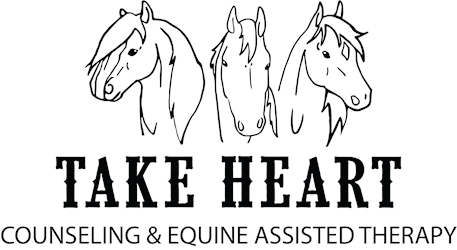Equine Therapy: Unraveling the Therapeutic Potential of Horses
The intersection of human psychology and animal companionship has garnered substantial attention in therapeutic settings, particularly with horses. Equine therapy, often referred to as equine-assisted therapy, engages participants in activities with horses under the guidance of mental health professionals and equine specialists. This method of healing is not merely a trend; it encapsulates a deeply ingrained connection between humans and horses, exploring how these majestic animals can facilitate emotional growth, resilience, and healing.
The pervasive influence of trauma on mental health cannot be overstated. Varied psychological conditions, including anxiety, depression, and PTSD, impose severe limitations on an individual’s ability to function in day-to-day life. Herein lies the primary endeavor of equine therapy: to provide an alternative pathway toward recovery that is both innovative and impactful.
Understanding Equine Therapy: Foundations and Methodologies
Equine therapy operates on a theoretical framework that blends equine science with psychological principles. Grounded in experiential learning, the participant’s engagement with the horse serves as a catalyst for emotional and psychological exploration. Horses, as prey animals, possess an acute sense of awareness and emotional intelligence. This intrinsic ability allows them to mirror human emotions, creating an interactive learning environment.
Equine therapy can be categorized into several distinct modalities:
1. **Equine-Assisted Psychotherapy (EAP)**: This approach integrates psychotherapy with interactions between the participant and horse. Under the supervision of a licensed mental health professional, individuals work through their feelings, progress is documented, and therapeutic goals are met through structured exercises and interactions.
2. **Equine-Assisted Learning (EAL)**: Focusing on personal growth and education, EAL emphasizes life skills development. Participants learn about leadership, trust, and communication through horse handling and grooming, fostering a deepened sense of self-awareness.
3. **Therapeutic Riding**: Encompassing both physical and psychological benefits, therapeutic riding helps individuals improve motor skills, balance, and coordination while concurrently promoting emotional well-being.
Integral to these methodologies is the concept of non-verbal communication. Horses communicate largely through body language and subtle cues, compelling participants to develop non-verbal awareness. This engagement fosters a unique bond, where help is mutually realized, providing a sanctuary for personal development in a non-judgmental environment.
The Therapeutic Impact: Psychological and Emotional Implications
Engaging with horses can have profound psychological benefits. Research indicates that equine-assisted therapies contribute significantly to the alleviation of emotional distress, with a notable impact on self-esteem, social skills, and emotional regulation. A poignant aspect of this therapy is the establishment of trust—both between the therapist and participant, and between the participant and horse.
1. **Enhancing Self-Esteem and Confidence**: Individuals suffering from low self-worth often find that their interactions with horses empower them. The responsibility of caring for such a large, sentient being fosters a specialized bond, allowing individuals to experience a sense of accomplishment as they learn to communicate and connect with their equine counterparts.
2. **Developing Emotional Regulation**: Many psychological disorders manifest through an inability to manage emotions effectively. Interacting with horses encourages participants to cultivate emotional awareness, as these animals are sensitive to shifts in mood and energy levels. This creates a context in which individuals learn to articulate their feelings articulately, both to the horse and to themselves.
3. **Facilitating Connections**: In an era marked by social isolation, equine therapy provides a dynamic space for community interaction. Participants often work in groups, which encourages collaborative efforts and peer support. Learning to work together toward common goals creates a sense of belonging that bolsters interpersonal skills and emotional connection.
A Critical Examination: Considerations and Challenges
Despite the burgeoning popularity of equine therapy, it is imperative to consider certain challenges inherent in the practice. Potential participants must navigate an array of perspectives regarding the effectiveness of this modality. Critical examination can lead to deeper understanding and more nuanced treatment strategies.
1. **Accessibility**: The practical applications of equine therapy are often constrained by geographic and financial barriers. Facilities that can provide equine therapy may not be available in all regions, creating disparities in access to mental health resources. Financial constraints may also limit the duration and frequency of treatment, impeding sustained progress.
2. **Safety Concerns**: Horses, while gentle and intuitive, are also large animals that can pose risks to inexperienced handlers. Proper training and supervision are essential to mitigate physical injuries and emotional trauma associated with potential accidents during therapy sessions.
3. **Evidence-Based Practice**: Though anecdotal evidence and participant testimonials lend credibility to equine therapy, the need for systematic research remains pressing. Establishing standardized protocols and empirical evaluations is pivotal to maintaining accountability within therapeutic practices and ensuring that claims of efficacy are substantiated.
In dealing with these challenges, practitioners and researchers ought to engage in partnership with the equine community, collaborating to foster greater understanding and development. Innovative approaches in other therapeutic modalities can be adapted to establish more inclusive access pathways while promoting the safety and welfare of both horses and participants.
A Call to Action: Embracing Equine Therapy in Mental Health Paradigms
As mental health continues to assume a critical role in society, it is essential to embrace diverse therapeutic pathways that extend beyond traditional modalities. Equine therapy presents an invigorating alternative that warrants robust attention and investment. It is a testament to the depth of the human-animal bond and offers transformative potential for those grappling with psychological burdens.
In closing, it is crucial for mental health professionals, policymakers, and advocates to collaboratively pursue avenues that elevate the status of equine therapy. By harnessing the wisdom of experiential learning and the empathetic nature of horses, we can offer a novel lens through which individuals may explore their psyche, fostering resilience, emotional health, and a renewed sense of self. The implications of this therapeutic modality extend beyond the individual, promising enrichments for communities at large.
